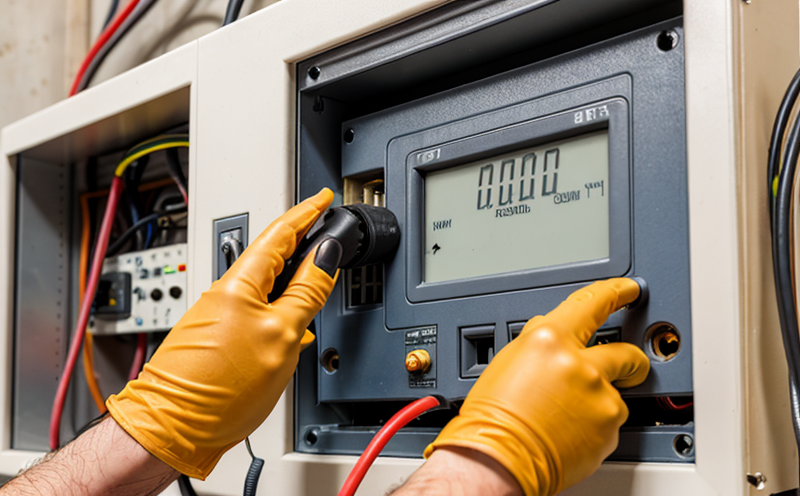IEC 63218 Electrical Performance Testing of Lithium-Ion Batteries in Aerospace Applications
The International Electrotechnical Commission (IEC) Standard IEC 63218 provides a comprehensive framework for the electrical performance testing of lithium-ion batteries used specifically in aerospace applications. This standard is crucial for ensuring that the batteries meet stringent reliability and safety requirements, which are paramount in the aerospace industry.
The scope of this test includes various aspects such as charging and discharging characteristics, internal resistance measurement, capacity retention over time, and temperature cycling effects on performance. The tests aim to validate the battery’s ability to withstand harsh environmental conditions found in aviation and space environments, including extreme temperatures and vibrations.
During testing, lithium-ion batteries are subjected to a series of controlled charging and discharging cycles under various temperature conditions. This helps determine how well the battery maintains its electrical performance over time, especially critical for long-duration missions like satellite launches or interplanetary probes. The internal resistance measurement is another key parameter that indicates potential degradation within the battery cells.
The Aerospace industry places a high emphasis on safety and reliability due to the critical nature of operations. By adhering to IEC 63218, manufacturers can ensure their products meet stringent regulatory requirements, thereby reducing risks associated with power failures in space missions or aircraft systems.
Compliance with this standard ensures that batteries are robust enough to operate reliably under extreme conditions while also providing accurate data for lifecycle management and maintenance planning. This not only enhances the overall safety but also contributes significantly towards reducing costs related to unexpected failures during mission operations.
Applied Standards
| Standard | Description |
|---|---|
| IEC 63218 | This standard specifies the electrical performance tests for lithium-ion batteries intended for use in aerospace applications. It covers various test methods including charge-discharge cycles, internal resistance measurements, and thermal endurance tests. |
International Acceptance and Recognition
The IEC 63218 standard has gained widespread acceptance among leading aerospace companies worldwide. Its rigorous testing protocols are recognized by regulatory bodies such as the Federal Aviation Administration (FAA) in the United States and the European Union Aviation Safety Agency (EASA).
Compliance with this standard not only demonstrates adherence to global safety standards but also enhances market competitiveness for manufacturers looking to enter international markets. Aerospace OEMs rely on these tests to ensure their products meet the highest reliability expectations, which is essential given the high stakes involved in space exploration and aviation.
Environmental and Sustainability Contributions
- Battery efficiency improvements reduce energy consumption during flights, contributing to lower carbon emissions per flight.
- The testing ensures longer-lasting batteries, reducing the frequency of replacements and thus minimizing waste generation.
- By ensuring reliable performance across a wide range of temperatures, these tests help prevent premature battery failures that could lead to unnecessary disposal.





